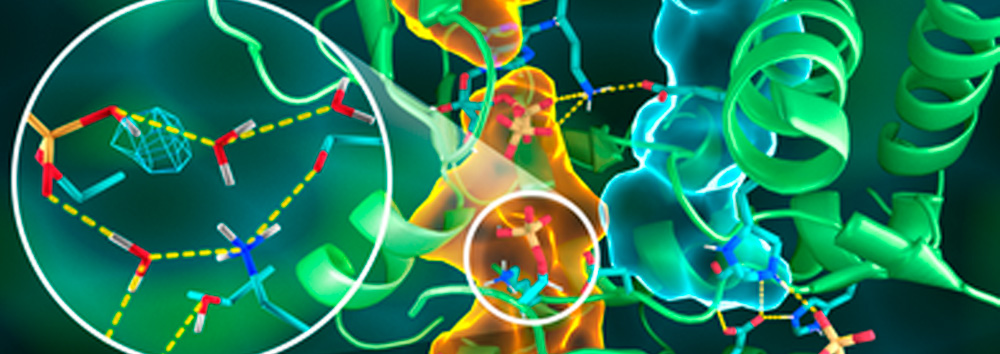The discovery was made by an international team of researchers using macromolecular neutron crystallography at the Department of Energy’s Oak Ridge National Laboratory (ORNL) and the Institut Laue-Langevin (ILL) in Grenoble, France. Building on a decade-long investigation, the combined efforts revealed previously unknown characteristics of the archetypal protein kinase, including a complete map of the atomic structure and the underpinnings of the enzyme’s chemistry used in cellular signaling. The details are published in the journal Science Advances.
Kinases are a large group of hundreds of enzymes responsible for initiating and regulating a myriad of cellular processes. Kinases send signals to proteins by way of phosphorylation—essentially adding a reactive chemical group consisting of phosphorus and oxygen to a specific location on a substrate protein to activate its specific biological function.
Problems arise when gene mutations occur that cause kinases to work improperly, which in turn leads to disease. For example, a malfunctioning kinase, or one that can’t be deactivated, could be responsible for the overexpression of proteins that lead to the uncontrollable propagation of cancer cells. The opposite is also true in neurological disorders in which a malfunctioning kinase simply causes cells to die.
“Creating drugs that target specific kinases is extremely important,” said ORNL co-author Andrey Kovalevsky. “This detailed understanding of the PKA structure and its dynamics will tell us more about other kinds of kinases and should help drug developers design new drugs with better specificity, which would ultimately translate to more precise therapeutics with fewer side effects.”
About ILL
The Institut Laue-Langevin (ILL) is an international research organisation that is a world leader in Neutron Science. Since its foundation in 1967, the Institute is a shining example of scientific cooperation. Presently 10 European countries (Spain, Switzerland, Austria, Italy, Czech Republic, Sweden, Belgium, Poland and Slovakia) ensure the necessary financial support for the ILL operation under the governance of 3 Associate Member countries: France, Germany and The United Kingdom. The research conducted at the ILL is dedicated to fundamental research (60%) as well as societal challenges research (40%). It covers a wide range of disciplines such as biology, (green) chemistry, materials science, condensed matter physics, as well as nuclear and particle physics.



